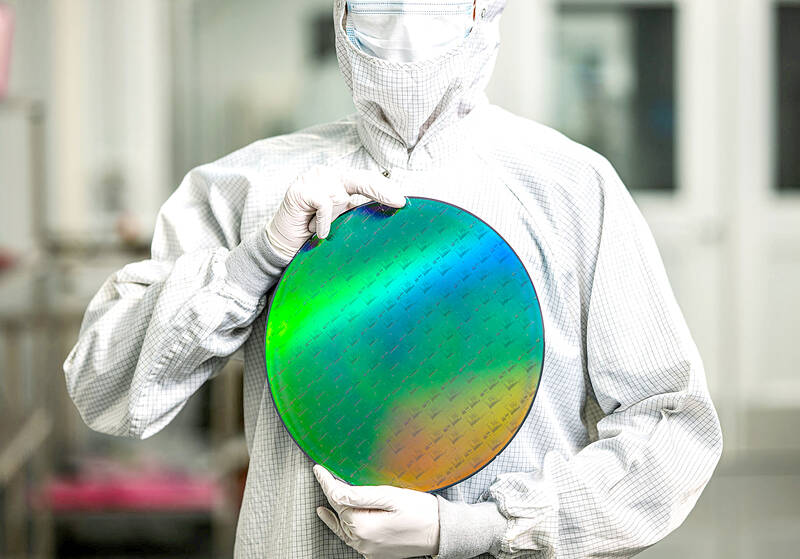After several dashed predictions, quantum computing is accelerating rapidly with actual use cases and scientific breakthroughs expected within years, not decades. US tech giants, startups, banks and pharmaceutical companies are pouring investments into this revolutionary technology.
Here’s what to know about tech that may change the world, but can be hard to decipher:
BEYOND 0 AND 1

Photo: Reuters
While classical computing relies on bits with just two states (0 or 1), quantum computing harnesses “qubits” with infinite possible states.
Each added qubit theoretically doubles computing capacity, allowing quantum computers to analyze countless possibilities simultaneously, solving in minutes what might take millions of years classically.
“Classical computers are speaking the wrong language. In quantum we’re almost speaking the language of nature,” said John Levy, CEO of hybrid chip developer SEEQC. “This unlocks previously unsolvable problems.”
Microsoft recently unveiled quantum technology based on an entirely new state of matter — neither solid, gas nor liquid. Levy’s verdict: “They should win a Nobel Prize.”
‘EFFICIENCY RACE’
Given its exponential computing power, Levy believes quantum’s potential exceeds our “limited imagination,” especially when paired with AI.
Some even view quantum computing as the only path to “superintelligent” AI with superior cognitive abilities.
Practically speaking, quantum technology will dramatically accelerate discovery of new molecules — extending the periodic table learned at school.
This will mean new materials, breakthrough medications, advanced fabrics, complex financial models and super-efficient batteries.
Philosopher and investor Anders Indset foresees an “efficiency race” transforming everything from agriculture to transportation.
“We’ll have hyper-efficient, lighter cars and cheaper, cleaner air travel methods.”
TOO MUCH NOISE
Quantum computers already operate today.
IBM claims its quantum services have generated sales of US$1 billion, though current applications remain limited mainly to research.
The market will initially expand through servers equipped with specialized chips and systems. “We are now switching from quantum theory to the quantum economy,” said Indset.
This explains why cloud leaders Amazon, Microsoft, and Google are jumping in.
“The drive is to be leader in trillion dollar industries,” Indset added.
The giants, already in a furious race to lead on AI, are heavily investing to solve quantum’s biggest challenge: calculation errors.
Qubits require sub-freezing temperatures and are extremely sensitive to environmental “noise” — vibrations, heat, electromagnetic interference — that cause computational errors.
Google’s new Willow quantum chip and Amazon’s Ocelot semiconductor prototype aim to dramatically reduce these errors and costs.
“We’re witnessing the creation of an ecosystem,” said Levy, the CEO, noting that pharmaceutical giant Merck is investing in SEEQC to secure access to future quantum tools.
IS IT SAFE?
The US and China are racing ahead in quantum development, with Washington imposing export restrictions on the technology.
Beyond competition, quantum computing poses serious cybersecurity concerns. Since qubits can test countless combinations simultaneously, they could potentially break conventional encryption methods.
US government agencies and tech companies like Apple are already developing “post-quantum” encryption to prepare for this new reality.

Last week the story of the giant illegal crater dug in Kaohsiung’s Meinong District (美濃) emerged into the public consciousness. The site was used for sand and gravel extraction, and then filled with construction waste. Locals referred to it sardonically as the “Meinong Grand Canyon,” according to media reports, because it was 2 hectares in length and 10 meters deep. The land involved included both state-owned and local farm land. Local media said that the site had generated NT$300 million in profits, against fines of a few million and the loss of some excavators. OFFICIAL CORRUPTION? The site had been seized

Next week, candidates will officially register to run for chair of the Chinese Nationalist Party (KMT). By the end of Friday, we will know who has registered for the Oct. 18 election. The number of declared candidates has been fluctuating daily. Some candidates registering may be disqualified, so the final list may be in flux for weeks. The list of likely candidates ranges from deep blue to deeper blue to deepest blue, bordering on red (pro-Chinese Communist Party, CCP). Unless current Chairman Eric Chu (朱立倫) can be convinced to run for re-election, the party looks likely to shift towards more hardline

Sept. 15 to Sept. 21 A Bhutanese princess caught at Taoyuan Airport with 22 rhino horns — worth about NT$31 million today — might have been just another curious front-page story. But the Sept. 17, 1993 incident came at a sensitive moment. Taiwan, dubbed “Die-wan” by the British conservationist group Environmental Investigation Agency (EIA), was under international fire for being a major hub for rhino horn. Just 10 days earlier, US secretary of the interior Bruce Babbitt had recommended sanctions against Taiwan for its “failure to end its participation in rhinoceros horn trade.” Even though Taiwan had restricted imports since 1985 and enacted

Enter the Dragon 13 will bring Taiwan’s first taste of Dirty Boxing Sunday at Taipei Gymnasium, one highlight of a mixed-rules card blending new formats with traditional MMA. The undercard starts at 10:30am, with the main card beginning at 4pm. Tickets are NT$1,200. Dirty Boxing is a US-born ruleset popularized by fighters Mike Perry and Jon Jones as an alternative to boxing. The format has gained traction overseas, with its inaugural championship streamed free to millions on YouTube, Facebook and Instagram. Taiwan’s version allows punches and elbows with clinch striking, but bans kicks, knees and takedowns. The rules are stricter than the